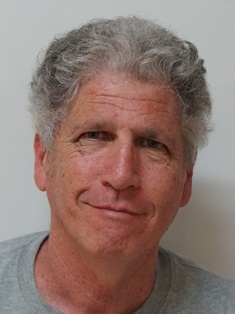Ben-Gurion University of the Negev theoretical physicist Prof. Yigal Meir and his colleagues have been awarded a 2020 ERC Synergy Grant worth $16 million. It is just one of 34 proposals which received funding out of more than 440 proposals submitted.
A team of researchers - Prof. Meir (pictured below), from the Department of Physics, together with three experimental groups from around the world — Prof. Klaus Ensslin (ETH Zurich, Switzerland), Prof. Josh Folk (UBC Vancouver, Canada) and Prof. Frederic Pierre (Saclay, France), has been awarded an ERC Synergy Grant last week, which recognizes ambitious, collaborative projects. The grant will allow the team to develop fundamentally novel thermodynamic measurement methods, in particular for entropy, for investigating new phases of matter that emerge in quantum electronic devices.

Photo credit: Yevgeny Bar Lev
In a normal metal, electrons move largely independently of each other. But when they interact in a more complex material, fascinating and often technologically interesting effects appear, such as ferromagnetism or superconductivity. Recently there has emerged a growing number of predictions for novel states of matter in which interacting electrons exhibit properties that contradict intuition on the one hand and are technologically promising on the other.
These effects include, for example, the Majorana fermion, which in a sense, consists of half an electron. These Majorana fermions have been promoted as the building blocks of future quantum computers. Microsoft, for example, has made major investments in the last decade to find complex materials that give rise to Majorana fermions. In spite of this huge effort, to date there is not a single material in which these particles have been proven to exist. The main obstacle to identifying them is that standard measurements fail to unequivocally distinguish between Majorana fermions and other particles.
A unique character of these Majorana fermions is their entropy, and the measurement of this quantity can indisputably resolve the question of whether the system supports a Majorana fermion. Entropy is a physical concept that characterizes the complexity of the system. Its conceptual significance notwithstanding, it is highly challenging to measure entropy in bulk systems, and it has never been measured in miniaturized electronic systems, where the Majorana fermions emerge.
For Majorana fermions, the new approach should establish which of the platforms actually do support these exotic particles, from the many suggested. Such firm experimental evidence will guide the community towards viable candidates for possible future quantum computers. The new development will also empower researchers worldwide to gain new insights into major outstanding questions in the field of complex materials, such as those related to the nature of the recently discovered superconductivity in twisted graphene layers. |